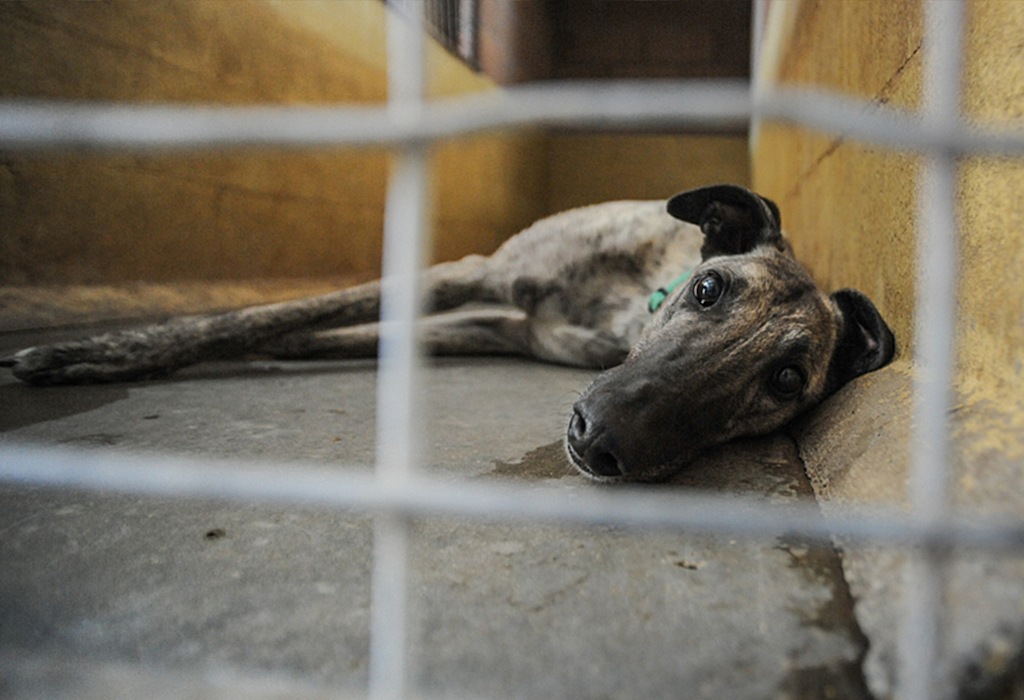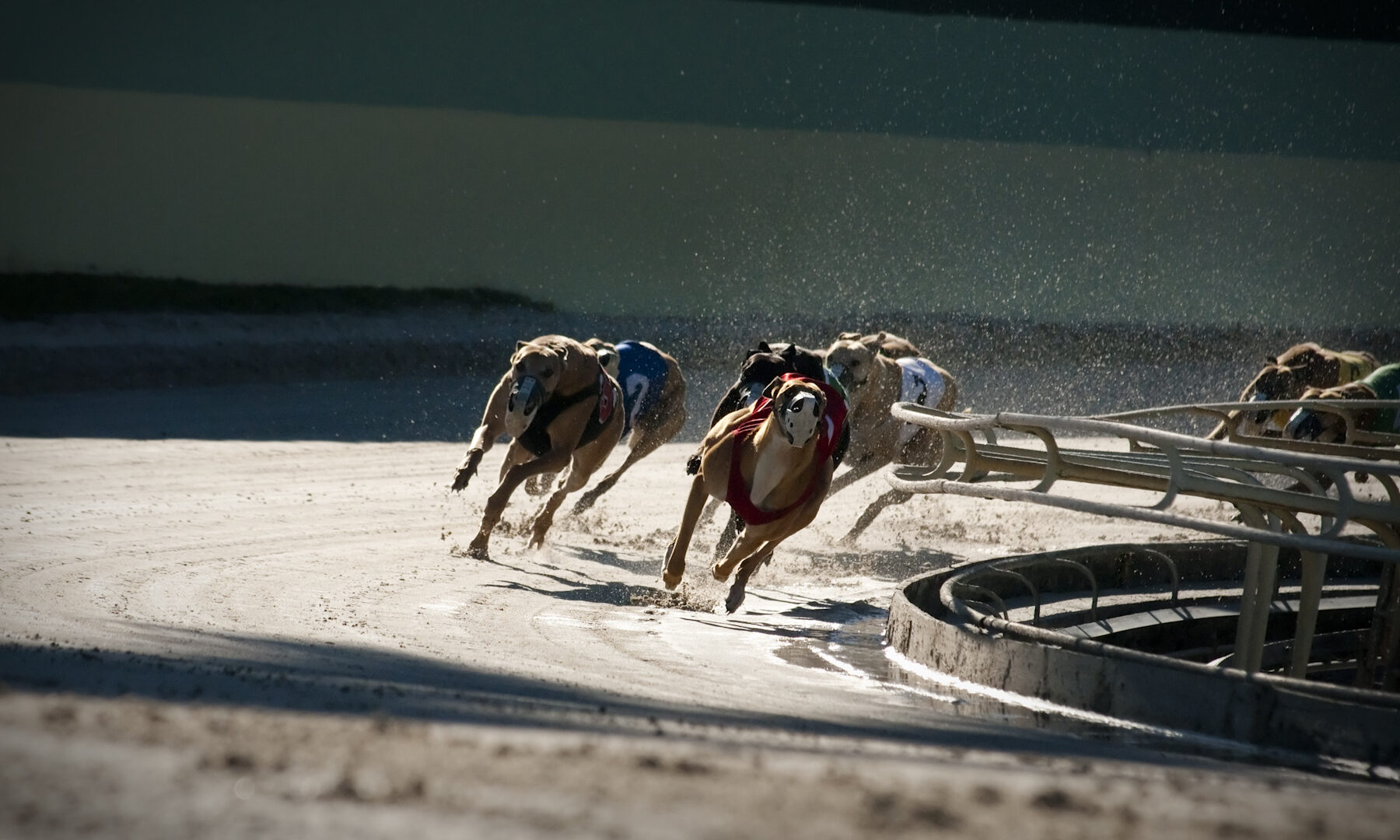One dog died every 3 days in 2024 at the hands of the racing industry. Yet it continues in nine countries worldwide, four of which are here in the UK.
Forcing dogs to race is widely recognised as cruel, with dogs routinely dying as a result of racing injuries or being discarded for heartless reasons, like not making ‘adequate’ qualification times. Dogs who are no longer wanted have even been shot or drowned, disposed of as ‘wastage’.
The industry is costly to taxpayers and also has deep links to gambling-related social harms like addiction, crime and homelessness.

Photograph by Jo-Anne McArthur / We Animals
Greyhounds are pushed to their physical limits – often far beyond. They reach speeds of up to 45 mph while navigating tight, unnatural curves that place extreme stress on their bodies. The toll is severe.
Behind the scenes, dogs are routinely drugged – including with illegal substances like cocaine – to enhance performance. Many race in dangerous temperatures, and there is little concern for their welfare.
Between 2017 and 2024, over 4,000 greyhounds died in this ‘regulated’ industry – some died from fatal injuries on the track, others were euthanised because treatment was too costly, and some were deemed unprofitable. In the same period, more than 35,000 injuries were recorded, ranging from fractured ribs and broken necks to internal bleeding, torn tendons and spinal paralysis.
This is not a sport – it’s an industry built on exploiting vulnerable animals, costing thousands their health, dignity and lives.
Approximately 6,000 greyhounds are exported from Ireland to Britain each year, making up over 80% of UK racing dogs. Yet many dogs bred for racing never appear on official records.
Thousands disappear each year, dismissed by the industry as ‘wastage’. Those who do race face uncertain futures – some are exported to countries like Spain, China and Pakistan, where welfare protections are minimal or non-existent. Greyhounds have even been found in the meat trade.
This is a global pipeline of exploitation and the dogs pay the price.
Life for most racing greyhounds is bleak. They live in barren, often filthy kennels, with minimal social contact, enrichment or play. Dogs housed in pairs are often muzzled, causing ongoing stress.
Rough handling, neglect and untreated injuries are common. Investigations have revealed heartbreaking scenes of starvation, abandonment and dogs left to deteriorate alongside dead kennel mates.
This isn’t care – it’s systemic cruelty.
The industry rarely sees greyhounds as sentient beings. Instead, they are disposable commodities, bought, sold and raced for profit. This mindset normalises cruelty and exploitation.
Once dogs are no longer profitable, they face grim fates: shot and buried in mass graves, drowned or exported to countries with little or no animal welfare laws, where they may be raced illegally, bred relentlessly or sold for meat.
The Greyhound Board of Great Britain, the self-regulating governing body, consistently fails to protect these animals, allowing widespread cruelty to persist.
Yet anyone who knows greyhounds will tell you they are gentle, affectionate dogs who deserve safety, dignity and a peaceful life – not a brutal career on the track.
There is also the huge social cost of racing greyhounds.
While the industry profits from over £800 million in betting turnover (April 2022–March 2023), it fails to cover the costs it imposes. Each year, around 8,000 greyhounds leave racing and are homed. Homing a healthy greyhound costs around £1,625, but the industry contributes just £400 per dog – to select charities. The gap is filled by overburdened rescues and the public.
The wider social harms from gambling are staggering. A 2023 government analysis estimates gambling costs the state around £412.9 million each year because of issues like homelessness, addiction and crime.
Greyhound racing isn’t just animal abuse – it’s a significant financial and social burden.

Take action for greyhounds
There's nothing entertaining about exploiting animals. Take action today for a kinder tomorrow.

